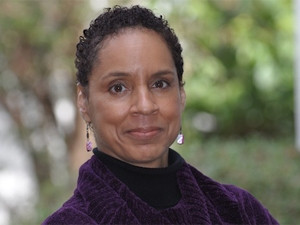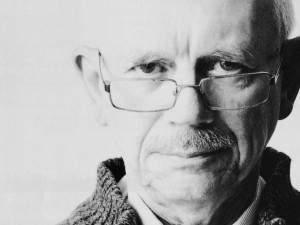
Long dubbed a "toothless bulldog" in the local telecommunications industry, regulator the Independent Communications Authority of SA (ICASA) has admitted to its shortcomings.
Yesterday, ICASA tabled its 2014/15 annual report to Parliament, which gives an overview of the regulator's performance for the year.
Willington Ngwepe, chief operations officer of ICASA, says the report paints a "bleak picture" of the authority's performance during the past financial period.
"The organisation is sitting at a desolate performance rate of 29%, meaning of all the targets we have set for ourselves, at least those on which the auditor-general (AG) measures us against, we only achieved 29%."
According to Ngwepe, this 29% is understandable when considering the AG's key findings, which include: ICASA underspent on conditional grants; performance information is inadequate or unreliable; the regulator's internal controls are deficient; and the authority has not managed the National Revenue Fund receivables well.
Meanwhile, communications minister Faith Muthambi has blasted ICASA for "wasteful expenditure", saying: "I have since written letters to entities that have reported an increase in wasteful expenditure, asking them to explain what remedial actions management will take to reduce this occurrence and improve their financial positions."
"No person within ICASA is in denial about the problems, both internal and external, that the organisation faces and the reasons why the organisation has performed so poorly. Neither are we ignorant about the mammoth task that lies ahead if we are to turn the organisation around," Ngwepe says.
Unqualified audit
Nonetheless, he says besides the bleak picture, the regulator reported a number of achievements during the year.
He points out the authority has received an unqualified audit for a third consecutive year. "Obviously, the ultimate aspiration is a clean audit. However, the fact that the organisation's finances have been unqualified three years in succession means the organisation is on the right track. This means we have the capacity to improve on our controls as well as our performance."

The impact of the authority's achieved strategic achievements have been of immense benefit, notes Ngwepe. For example, ICASA played a significant role in facilitating free and fair national elections during the 2014/15 financial year by ensuring equitable treatment of political parties by broadcasters.
According to Ngwepe, the wholesale call termination regulations have significantly changed pricing behaviour in the market; and the regulatory framework for the licensing of the international mobile telecommunications (IMT) spectrum bands is now firmly in place as a result of the promulgation of the IMT roadmap and the radio frequency spectrum assignment plans.
Finally, he points out that performance on day-to-day operational activities undertaken by the people in the organisation in service to industry and consumers are not measured by the AG as they are mainly operational activities and not strategic, and keep the sector functioning.
"I know there is still room for improvement from a service provision and turn-around time perspective. However, this is the one area where we continue, mostly behind the scenes, to make improvements on a day-to-day basis."
Strong leadership
ICT veteran Adrian Schofield says for any organisation to succeed, it needs good leadership, clear goals and support from its shareholders/stakeholders.
ICASA has suffered from a lack of all three in recent times, particularly but not entirely as a result of the Department of Telecommunications and Postal Services and Department of Communications split leading to a state of policy paralysis, he notes.
"ICASA needs a strong, dynamic chairman who is sensitive to the pressing needs of the country's move to broadband - a strong council made up of knowledgeable people who understand their role; a capable executive, which has the full support of the chairman; and a mandate from government that is free of petty politics."
Loren Braithwaite-Kabosha, CEO of the South African Communications Forum (SACF), says the SACF recognises the vital role ICASA must play in order to enable the future growth and development of the sector.
"We appreciate the commitment expressed by the COO to improve performance. With regard to ICASA, independence and accountability are crucial. Given independence to carry out its mandate, the regulator should be rigorously assessed and held accountable for failure to comply with the objectives of the law and to carry out its mandate."
She adds the SACF recommends ICASA must report on its activities to Parliament twice a year for enhanced effectiveness, or as often as possible to the extent that performance is constantly and adequately monitored and there is still room for remedial action.

"We welcome the COO's focus on broadband deployment and acknowledgement that spectrum is the life-blood of the industry. ICASA and the Department of Telecommunications and Postal Services have been wrestling with the processes to assign 'high demand' spectrum since 2006.
"There is a pressing need to resolve this issue, along with determining how the 700MHz and 800MHz 'digital dividend' spectrum will be assigned. Access to this high demand spectrum remains one of the primary obstacles to advancing broadband infrastructure and services as required by SA Connect," she points out.
Another important critical process to be engaged on by ICASA is the promotion of competition for the benefit of consumers, says Braithwaite-Kabosha.
Jens Langenhorst, chairperson of the Wireless Access Providers' Association, says the under-capacitation at ICASA has long been a concern for all stakeholders in the South African telecoms sector.
He notes that, from the AG's findings, it is clear resources need to be allocated more effectively at ICASA, but this requires that the authority has seasoned experts in technical and regulatory affairs to make the right decisions, as well as clear and unequivocal policy guidance from government.
"Despite its challenges, ICASA has made major operational improvements, including reducing application times for licensing and a more progressive model for pricing spectrum, which has been very positive for our industry. However, as markets and technologies continue to evolve, ICASA must stay abreast of all ICT developments, which needs more senior engineering staff," Langenhorst concludes.
Share